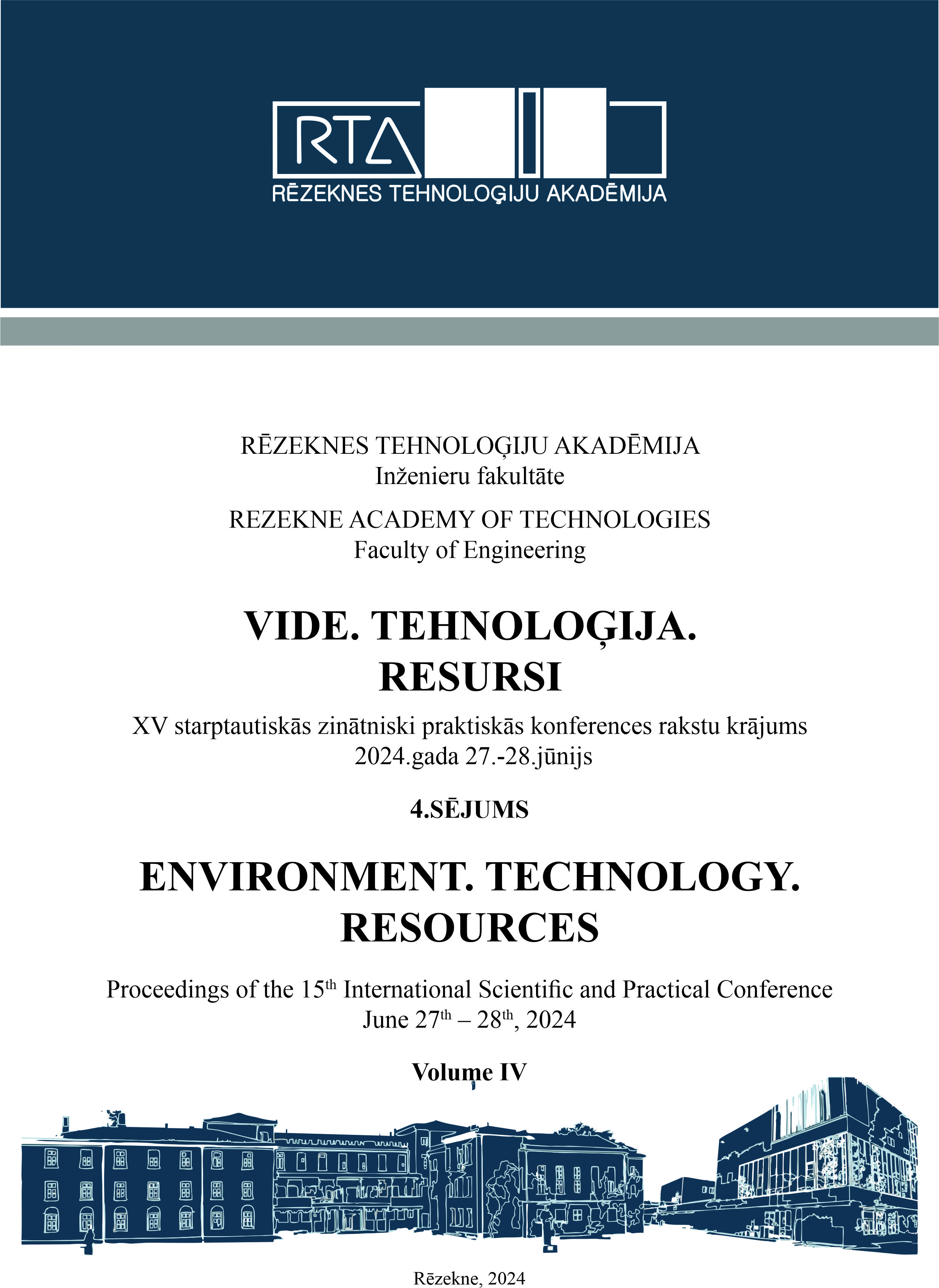THE SYSTEM OF EDUCATION, TRAINING AND RESEARCH IN THE FIELD OF SECURITY - MANAGING CHANGE THROUGH EXPERIENCE AND KNOWLEDGE
DOI:
https://doi.org/10.17770/etr2024vol4.8213Keywords:
change, education, management, science, securityAbstract
Security is a complex system of higher order, in the broad sense of the word, and represents a condition that ensures a guaranteed protection by various means of vital interests of person, society and state from any external, internal, environmental, etc. threats and they can make their progress. Security is among the basic individual and group needs that stand out independently of the cost.
Searching for and finding effective means for manageable changes in the system of education, training and scientific research in the sphere of security is crucial not only for the state's security, but for all further democratic development of the Republic of Bulgaria as a dignified partner but a source, not a consumer of security. In order to evolve in modern conditions, the system of education, training and scientific research in the sphere of security must be above all adaptive, i.e., capable of changing to respond to changes in the security environment. Change is not just one of the most important processes in one organization but an opportunity for its active and effective participation in this change.
The focus of the proposed research is on the management of specific intellectual assets and the use of the organizational channels through which knowledge flows in the security system, proposing one of the most important security policies - the transformation of the security sector - to meet the basic principles , approaches and mechanisms for the integrated functioning of institutions in the field of security - because priority threats against security require prioritized actions and reforms in investments concerning priority actions and policies due to the limited and decreasing trends of national resources. Organizational development is the study and application of practices, systems, and techniques that effect organizational change, the goal of which is to change the performance and culture of an organization.
The interrelationship and interdependence between structure, people, and procedures in the security education, training, and research system makes it imperative to follow an integrative model of organizational change that places assessment and design processes at the heart of successful organizational change
References
E.Petrova, Management in the Changing World. Veliko Tarnovo, Publishing Complex of the Vasil Levski National Military University, 2012.
E.Petrova, Management in the Changing World. Veliko Tarnovo, Publishing Complex of the Vasil Levski National Military University, 2012 .
Kotter, John., St. Cohen, The Heart of change. Classic and style. Sofia, 2003.
V.Vasilev, Effective public management. SWU Neophyte Rilski. Blagoevgrad 2011.
K.Lewin, Group decisions and social change. Swanson, G. et al. Readings in Social Psychology. Holt, Rhinehart & Winston, 1958 .
V.Dimitrova, The impact of couching on the Emotional Intelligence of Managers in the Organization, International Conference on Creative Business for Smart and Sustainable Growth (CREBUS), Sandanski, INSPE, 2019..
R.Marinov, Dynamics in the theory and practice of the strategic management. International conference on High Technology for Sustainable Development HiTECH 2018, 11-14 June 2018, Sofia, Bulgaria. Date Added to IEEE Xplore: INSPEC 2018.
N.Dolchinkov, Optimizing energy efficiency in the conditions of a global energy crisis, Optimizing Energy Efficiency During a Global Energy Crisis, 2023, ISBN13: 9798369304006 EISBN13: 9798369304013, DOI: 10.4018/979-8-3693-0400-6 pp. 1–9
V.Vasilev, D.Stefanova, C.Popescu, Human capital management and digitalization-From good practices and traditions to sustainable development; Book Chapter: Digitalization, Sustainable Development, and Industry 5.0: An Organizational Model for Twin Transitions, pp. 41–65; https://doi.org/10.1108/978-1-83753-190-520231004, 2023
D.N.Todorov, State of the population disclosure systems in the changing radiation situation in Bulgaria, Vide. Tehnologija. Resursi - Environment, Technology, Resources, 2019, 1, pp. 54–58
HGigauri, I., Vasilev, V.P. .Paradigm shift in corporate responsibility to the new ERA of ESG and social entrepreneurship; Book Chapter: Sustainable Growth and Global Social Development in Competitive Economies, pp. 22–41; https://www.igi-global.com/gateway/chapter/330086?fbclid=IwAR3JMbgGR8RvOnw3P7QsSIh6vwPZnjUV0QkYlrh0W7Cy2Pzt-H_kzBp50AI ; DOI:10.4018/978-1-6684-8810-2.ch002, 2023
Downloads
Published
Issue
Section
License
Copyright (c) 2024 Stoyko Stoykov

This work is licensed under a Creative Commons Attribution 4.0 International License.



